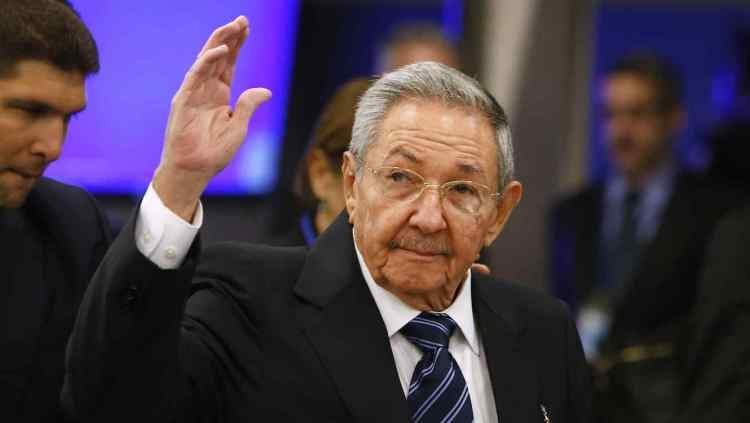The U.S. government has applied sanctions to former Cuban President Raúl Castro, which include denying visas to him and his relatives.
“The Department (of State) publicly designates (as sanctioned) Raúl Modesto Castro Ruz…for his involvement in gross violations of human rights,” U.S. Secretary of State Mike Pompeo announced in a statement from NY.
.@SecPompeo delivers remarks at a press availability in New York during the 74th session of the UN General Assembly. #UNGA74 pic.twitter.com/vvVjjlhGU6
— Department of State (@StateDept) September 26, 2019
A short while before this, the State Department delivered a press availability, which OnCuba partially attended, where it was reported that the sanctions include the denial of visas to travel to the United States, except for United Nations meetings in New York, and his close relatives are included. Pompeo’s statement mentions by name the children of the former Cuban President, Alejandro, Deborah, Mariela and Nilsa Castro Espin and states that it is due to a compulsory paragraph (c) in law 7031, which was applied in this case, but, curiously, the measure does not affect either the current president, Miguel Díaz-Canel, or Castro’s former son-in-law, Luis Alberto Rodríguez López Callejas, director of GAESA, a conglomerate under military administration.
The U.S. secretary of state said that as the first secretary of the Cuban communist party, Raúl Castro oversees a system that arbitrarily arrests thousands of Cubans and currently holds more than 100 political prisoners. As the first secretary (sic) of the Cuban armed forces, Castro is responsible for the Cuban actions that prop Maduro’s old regime in Venezuela through violence, intimidation and repression. Members of the Cuban security forces, in collaboration with Venezuelan military and intelligence officers, are involved in gross violations of human rights and abuses in Venezuela, including torture. Castro is an accomplice in the subversion of Venezuelan democracy and unleashing the greatest humanitarian crisis in Latin America, forcing 15% of the Venezuelan population to flee the country and precipitate an unprecedented food and health crisis in the region.
Today we designate Raul Castro and his immediate family for his involvement in gross violations of human rights. The Cuban regime's disregard for human rights and use of violence to prop up the former Maduro regime are responsible for the ongoing crises in #Cuba and #Venezuela.
— Secretary Pompeo (@SecPompeo) September 26, 2019
The issue of freezing some financial or real estate assets that the Castros have in the United States was also addressed, but the participants came to the consensus that it is very difficult that they exist.
Sanctions of this type have already been applied to Venezuelan President Nicolás Maduro. In fact, the topic was discussed at the strategy press availability call and participants stressed that these sanctions also aim to draw attention to the situation in Cuba, taking into account the recent visit to the island of High Representative of the European Union (EU) for Foreign Affairs and Security Policy Federica Mogherini.
Immediately after the news came out, one of the leaders of the Venezuelan opposition, Julio Borges, boasted in a twit having attained this sanction after a meeting with President Trump whose date he has not specified. The new U.S. sanctions occur days after Washington decided to sanction two companies, one from Cyprus and another from Panama, for transporting Venezuelan oil to Cuba.
Empezamos a ver los resultados de nuestro encuentro con el presidente @realDonaldTrump y líderes latinoamericanos.
Pedimos presión contra Cuba y hoy se anuncian sanciones contra Raúl Castro, responsable del plan para sostener la dictadura criminal de @NicolasMaduro. https://t.co/d1IYjfkNvy
— Julio Borges (@JulioBorges) September 26, 2019
The former Cuban president has only been twice to the United States. In 1959 he traveled to Houston, Texas, for a meeting with his brother, former President Fidel Castro, and in 2015 he went to New York to participate in the opening session of the United Nations General Assembly, when he had the opportunity to meet with former U.S. President Bill Clinton, leaders of other countries and give a speech to the assembly.

However, two of his children have had some kind of involvement in bilateral relations. His son, Alejandro Castro Espín, called the shots on behalf of Cuba in the negotiations that led to the reestablishment of diplomatic relations at the ambassadorial level between the two countries. And his daughter, Mariela Castro, has participated in events related to her responsibility as director of the Cuban National Center for Sex Education (CENESEX).










